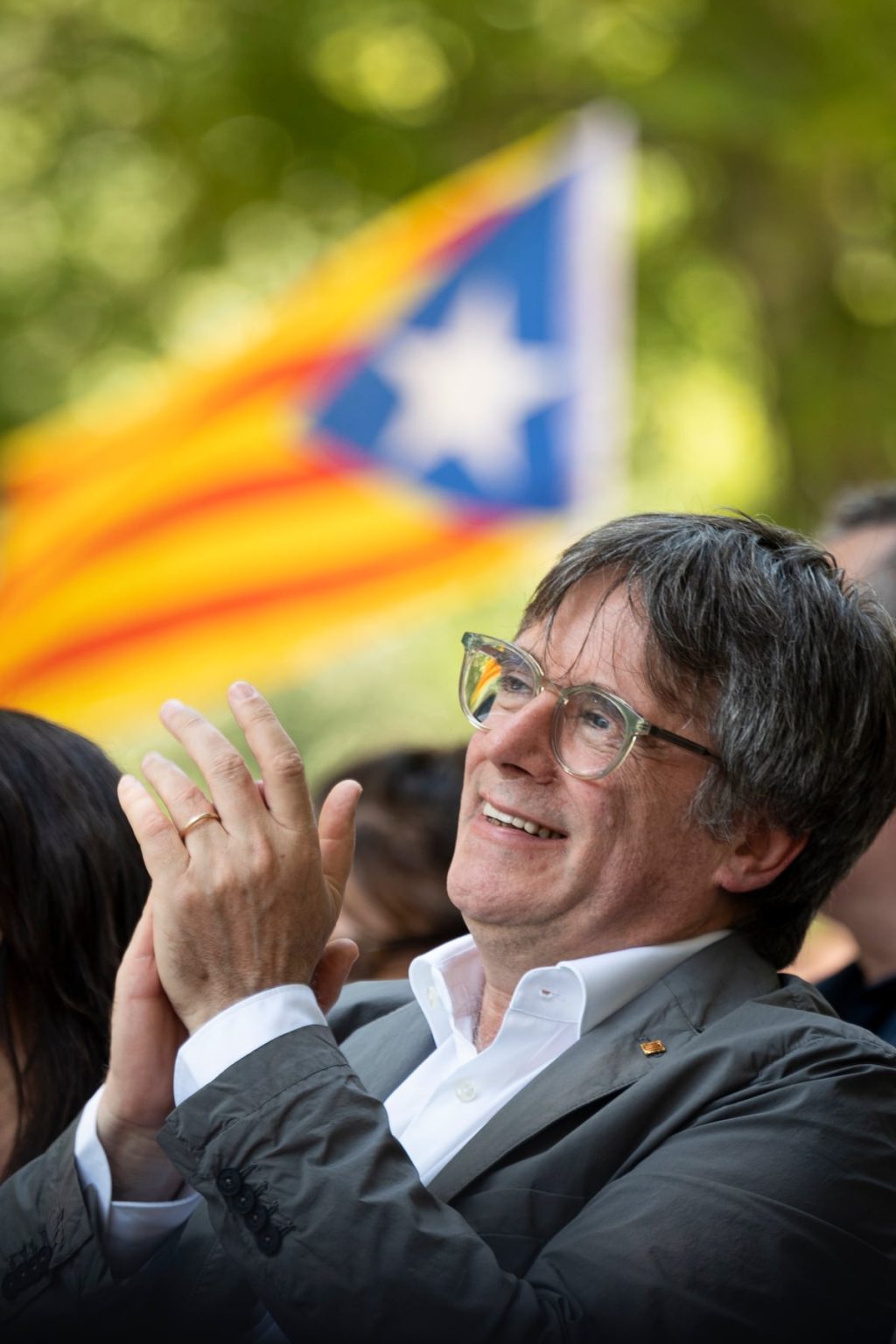Carles Puigdemont’s long escape from justice seems to be coming to an end. In a event held in the French town of Amélie-les-Bains near the Spanish border, he announced his return coinciding with the investiture session in the Catalan parliament or with the first electoral campaign that may precede new regional elections if a government majority is not formed before the August 25 deadline. Puigdemont’s goal is to prevent Salvador Illa, who won the May 12 elections, from being invested with the votes of Esquerra Republicana. He does not seem to care that Catalonia has been in a state of limbo for three months and could continue until 2025 if new elections are called. Puigdemont’s actions have been seen as damaging to Catalonia by perpetuating instability and weakening the government led by Pedro Sánchez.
Puigdemont’s rhetorical invocations of the interests of Catalonia are seen by some as a facade, as his actions seem to harm the citizens of Catalonia by prolonging the political instability in the region. His party, Junts, despite Puigdemont’s disruptive radicalism, is a conservative formation that primarily competes with Esquerra for the leadership of the independence movement, while calling for a reconstruction of unity that he himself broke by leaving the republicans isolated in the Catalan government. His strategy seems to be directed towards ERC militants in light of a potential consultation regarding an agreement between ERC leadership and the PSC. Despite his firm stance on unilateral action being rejected by Catalan society in the last regional elections, Puigdemont continues to challenge the established political landscape.
The traditional pragmatic approach of the former Convergents has been abandoned by Carles Puigdemont. However, the urgent need for a stable government that can address the issues facing Catalonia after a decade of instability remains. Puigdemont had previously announced that he would step aside if he was not invested as president, but given the parliamentary arithmetic, it seems unlikely, if not impossible, that his presidential aspirations will be fulfilled. Recognizing the lack of a majority for the independence parties in the Catalan Parliament and the necessity for Catalonia to move past the current period of institutional limbo, Esquerra is demonstrating a greater sense of realism and positioning itself as a stabilizing factor in the region.
Despite the growing competition from the far-right Aliança Catalana and Esquerra’s desire for governance, Junts remains committed to its confrontational approach, even as the possibility of another electoral failure looms. If Esquerra manages to secure a favorable fiscal agreement with the PSC, Junts will have lost a key advantage in the nationalist dispute. The continued push for unilateral action by Puigdemont, despite its rejection by Catalan society, raises questions about the party’s commitment to effective governance and addressing the real needs of the people of Catalonia. Catalonia is in need of a government that can provide stability and tackle the pressing issues facing its citizens, and the current political deadlock created by Puigdemont’s actions is hindering progress.


